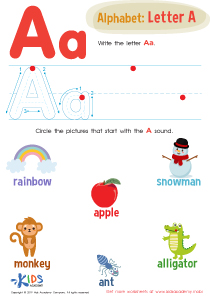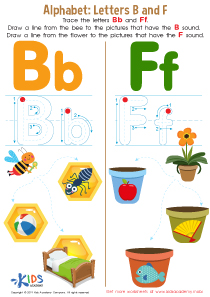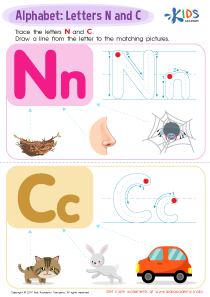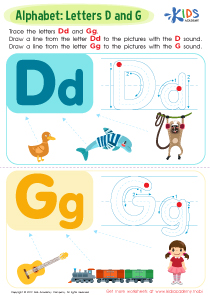Letter K Worksheets for Ages 3-6
3 filtered results
-
From - To
Discover our engaging "Letter K Worksheets for Ages 3-6" designed to make learning fun and interactive! These worksheets enhance early literacy skills by introducing young learners to the letter K through various activities, including tracing, matching, and coloring. Each worksheet is tailored to help children recognize the letter K, sound it out, and connect it with words and images that start with this letter. Ideal for home or classroom use, our printable resources support developmental milestones in phonics and fine motor skills. Jumpstart your child's reading journey with our captivating worksheets that ignite a love for learning! Explore now!
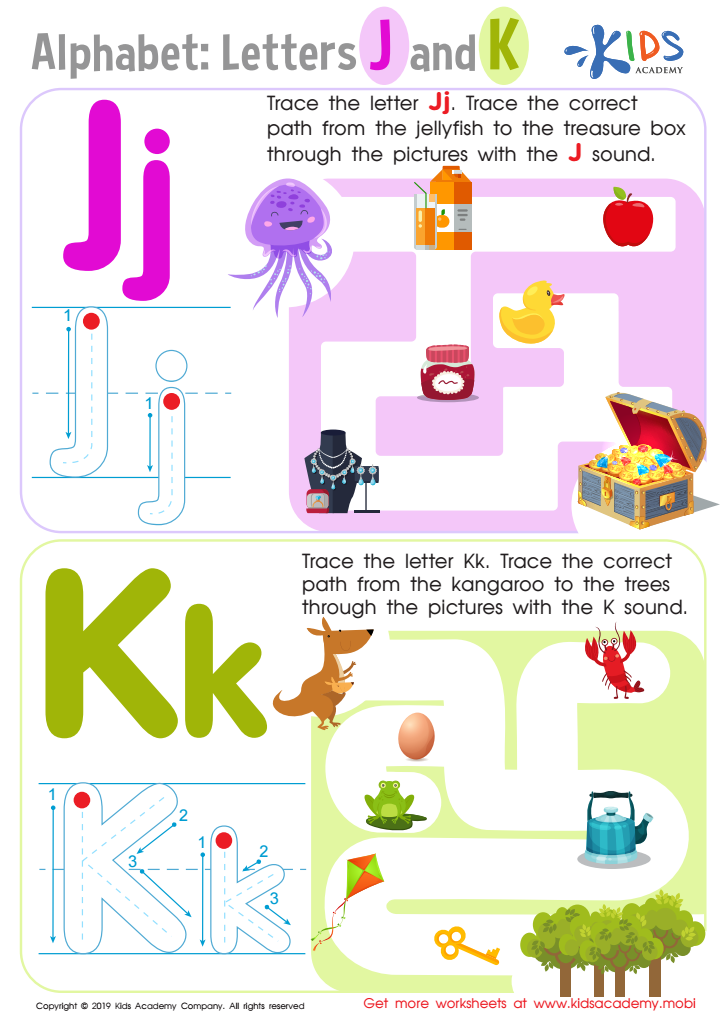

Letters J and K Tracing Worksheet
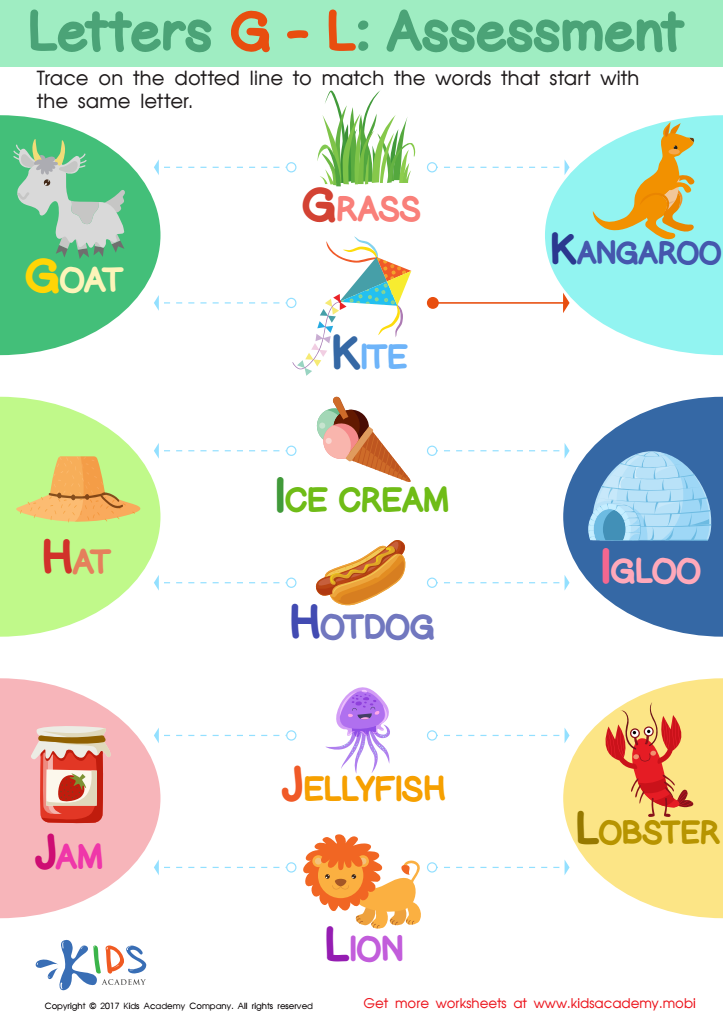

Letters G-L Worksheet
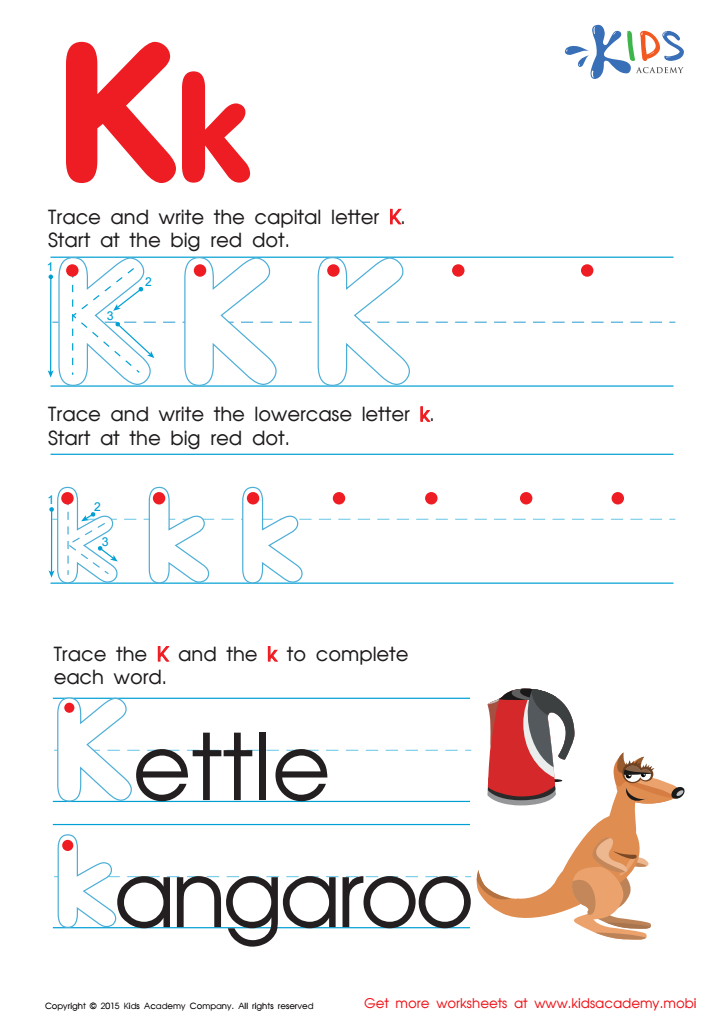

Letter K Tracing Page
Teaching the letter K is crucial during early childhood education for several reasons. First, learning about individual letters, like K, helps children develop their phonemic awareness, a foundational skill for reading. Recognizing and pronouncing the sound of K helps young learners connect letters to sounds, aiding in their ability to decode words later on.
Additionally, the letter K is prominent in everyday vocabulary, representing common words such as “kite,” “cat,” and “king.” When children engage with these words, they build their vocabulary and enhance language skills. Associating K with tangible objects and experiences fosters a more meaningful learning experience.
Moreover, interactive activities centered around learning the letter K—such as crafts, songs, or games—stimulate creativity while reinforcing letter recognition in a fun way. Engaging parents in this process, through take-home activities or word lists, reinforces learning beyond the classroom.
Finally, focusing on letters like K allows children to develop fine motor skills through writing practice. As they learn to form the letter K, they gain confidence in their writing abilities. By prioritizing lessons about the letter K, parents and teachers can support children’s literacy development, creativity, and overall cognitive growth—laying the foundation for lifelong learning.
 Assign to My Students
Assign to My Students











